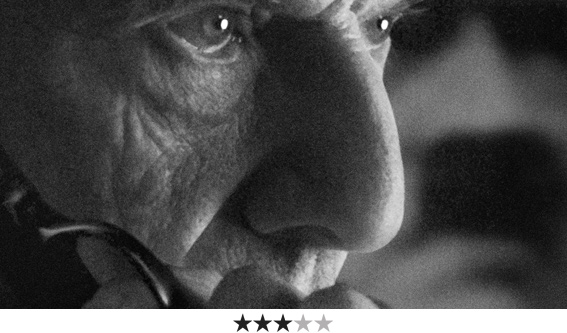Review: The Last Sentence
Based on the life of Swedish journalist Torgny Segerstedt, this black and white biopic follows Segerstedt’s one-man battle against Hitler, the Nazi ragime and his own country’s neutrality. Read more and find movie times. Veteran Swedish director Jan Troell’s biopic of his fellow countryman, Torgny Segerstedt (Jesper Christensen) – a newspaper editor in the ‘30s […]

Based on the life of Swedish journalist Torgny Segerstedt, this black and white biopic follows Segerstedt’s one-man battle against Hitler, the Nazi ragime and his own country’s neutrality.
Read more and find movie times.
Veteran Swedish director Jan Troell’s biopic of his fellow countryman, Torgny Segerstedt (Jesper Christensen) – a newspaper editor in the ‘30s who spoke out against Adolf Hitler – is an exceedingly sombre, lugubriously paced historical drama that stirs the intellect more than the heart. Which is a little odd, since Klaus Rifbjerg’s screenplay – based on Kenne Fant’s biography – foregrounds the personal aspects of Togrny’s life, focusing on his relationship with three women: Norwegian wife Puste (Ulla Skoog), who’s trapped in a loveless marriage; Jewish mistress Maja (Pernilla August), who’s married to his publisher boss; and his dead mother, who haunts him as a black-veiled apparition.
Don’t expect any of the earthy, comforting sepia-toned beauty of Troell’s previous film Everlasting Moments – The Last Sentence is shot digitally (and dully) in black-and-white, bringing an unavoidably stately quality to the proceedings and also effectively draining everything of warmth. But it’s a testament to Christensen’s excellent work as Torgny that he’s able to make such a difficult, inscrutable character so watchable throughout. On one hand, Torgny’s an admirable crusader, fearless – or some might say, stubborn – in the face of tyranny and political pressure. But at the same time, we also see a man who’s somewhat monstrously driven by hubris and selfishness, overcompensating for his past failings as a theologian and quick to brush off his wife’s affections for the slobbery attention of his three dogs.





















